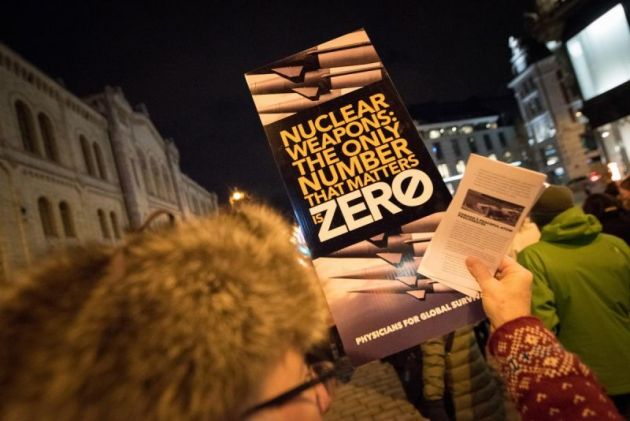Churches, Buddhist group hail ratification of Treaty on the Prohibition of Nuclear Weapons

A broad spectrum of churches and a major Buddhist group have hailed the ratification of Treaty on the Prohibition of Nuclear Weapons, which seeks for the first time to establish a comprehensive ban on atomic weapons.
The treaty aimed at destroying all nuclear weapons and prohibiting their use forever crossed a decisive milestone Oct. 24, signaling its entry into force in 90 days.
The ratification by Honduras of the United Nations Treaty on the Prohibition of Nuclear Weapons or TPNW, becoming the 50th nation to do so and the minimum needed for it to enter into force as international law.
"The Holy See and the popes have vigorously supported the effort of the UN and the world against nuclear weapons," Vatican News reported.
"In a video message on September 25 on the occasion of the UN's 75th anniversary this year, Pope Francis reiterated his call for increased support for the principal international and legal instruments on nuclear disarmament, non-proliferation and prohibition."
The World Council of Churches, representing more than 550 million mainly Anglican, Orthodox and Protestant Christians on Oct. 26 welcomed the ratification of the prohibition treaty.
"It has now triggered the 90-day period after which the treaty will enter into legal force, meaning that a new normative standard in international law has been created, and that - for those States which are parties to it – the treaty must now be implemented," said Peter Prove, director of the WCC' Commission of the Churches on International Affairs.
The governments of the nine countries which continue to hold and develop nuclear weapons have been critics of the TPNW.
The WCC said that those of countries which believe themselves to be protected under the "umbrella" of nuclear-armed States – seek to minimize its significance by pointing to the fact that the States which have ratified the Treaty do not have any nuclear weapons anyway.
Although the TPNW does not bind the States that are not parties to it, the treaty creates a new global norm towards rejecting nuclear weapons, which is expected to influence and constrain their behavior
The Soka Gakkai Buddhist group also welcomed the UN nuclear ban treaty when it posted a statement on its Facebook page.
Soka Gakkai international director-general for Peace and Global Issues Hirotsugu Terasaki said, "The entry into force of the TPNW establishes the fundamental norm that nuclear weapons are subject to comprehensive prohibition. This has a profound historical significance."
The Buddhist group's statement called upon nuclear-weapon and nuclear-dependent states, including Japan – the only country to have experienced the devastation caused by nuclear bombing during wartime – to attend as observers the first meeting of parties to the TPNW to be held within one year from its entry into force.
The 50 member ratification threshold was reached a little more than three years after the treaty was completed in negotiations at the UN's New York headquarters.
UN Secretary General António Guterres described the ratification as "the culmination of a worldwide movement to draw attention to the catastrophic humanitarian consequences of any use of nuclear weapons."
The UN's announcement was hailed by anti-nuclear activists but the United States and 8 other nuclear-armed countries have strongly opposed it.
Guterres commended all the countries whose ratification of the accord, approved by 122 nations at the General Assembly on July 7, 2017, has helped bring the ban on weapons this far, singling out the work of civil society groups.